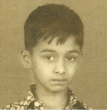There cannot be anything more tragic in life than not being sure whether your loved one is dead or not. That was the lot of 54 families after the 1971 war when their men were taken as POWs in Pakistan and nothing was ever heard off since.
After the 1972 Shimla Accord, India sent home 93,000 Pakistani prisoners of war and Pakistan repatriated 650 Indian soldiers. At the time, it was thought to be the complete number. But 54 families in India believed otherwise and since then waged a campaign to trace their loved ones.
President Pervez Musharraf’s invitation to these families to visit jails in Pakistan came in response to a request from New Delhi. Pakistan said it was making an “unparalleled humanitarian gesture” of access to 10 jails to give “relief and closure” to the affected families but asserted it was not holding any Indian prisoners of war.
As a result, when the 14 people — wives, brothers and one daughter of the missing men — arrived in Lahore to look after their loved ones after nearly 3 decades.
“Closure is not a word that we have ever used. We came here looking for answers, for the truth about these missing men,” said G.S. Gill, whose elder brother H.S “High Speed” Gill went missing after his MiG-21 was shot down over Badin.
Damyanti Tambay’s constant companion since the war has been a yellow, crumbly copy of the December 5, 1971 issue of the Pakistan Sunday Observer. It tells her that her husband, a Sukhoi pilot whose name in the report is wrongly spelt as “Flight Lieutenant Tombay”, was one of five pilots captured alive.
Reshma Advani and Kamlesh Jain heard about their husbands’ capture on Radio Pakistan while Suman Purohit’s hopes rest on an anonymous message that her husband is alive. Ravinder Kaura’s family has kept its hopes alive thanks to the reported sightings of the missing captain by Indians who returned after spending time in Pakistani jails. Nirmal Kaur’s belief that her husband, Aasa Singh, is alive was reinforced when an Indian, who returned home in 2002 after serving a jail term in Pakistan as a “spy”, told her he had seen the subedar at a military detention centre in Multan Cantonment in 1991 and 1992. Jasbir Kaur has a copy of a letter in Gurmukhi from her husband Major Kanwaljeet Singh to Prime Minister Indira Gandhi in 1980, asking her to secure his release. On such slender leads hopes were based and the ladies never accepted that their husbands could be dead.
Accompanied by officials of the Indian High Commission and one from the Pakistan Interior Ministry, the group visited 10 prisons — Lahore’s Kot Lakhpat, jails in Multan, Sahiwal, Faisalabad, and Mianwali in Punjab province; Karachi central jail and Sukkur in Sindh; Adiala jail in Rawalpindi; Malakand and Swabi in the North-West Frontier Province.
“We started out with mixed feelings. Some of us felt it was not going to serve much purpose. But some were optimistic,” said Simmi Waraich, who was three when her father Major S.P.S Waraich went missing. But after visiting only a couple of jails, the entire team realized that this was not the best possible search method — it was unlikely that servicemen would be kept with civilian prisoners; and even if they were, it was unlikely there would be any records of their imprisonment.
The team members concluded they had to widen their search to military prisons and detention centres, even mental asylums. “Every kind of possibility is there,” Gill told the Pakistani media. “We do not know where to find these people; we need your help and the help of the Government.”
With a naiveté born out of faith, they also wanted the Pakistan Government to know that if it was holding the men, the families would accept their release without making an issue. “We accept that mistakes happen in war. Pakistan may have a problem admitting that it still has the men because that would mean a violation of the Geneva Convention, but there are examples to show this has happened before,” said Simmi Warraich, citing the recent release by India of two Chinese soldiers more than four decades after the Indo-China war.
Still, until the last day, the team hoped for a meeting with President Musharraf, a request they made many times. Gill said the team would have liked to spend a “few minutes” with him to tell him that “our proofs are real”. Had the Pakistan President granted a meeting, it may not have been as formal a conversation as Gill visualized. For the group, it would have been an opportunity to appeal directly to a man, who a soldier himself, would understand the feelings of these families and empathize. As one member of the group said, they were prepared to “catch hold of his feet and not allow him to move” until he said, “here are your men, take them with you.
Thursday, May 7, 2009
Subscribe to:
Post Comments (Atom)



No comments:
Post a Comment